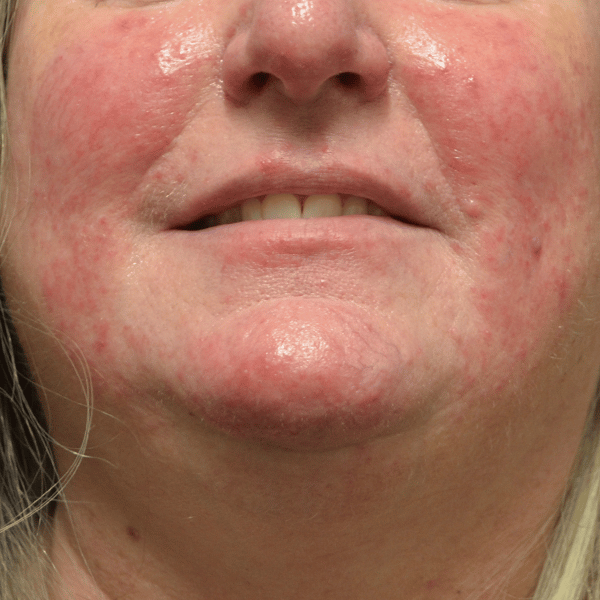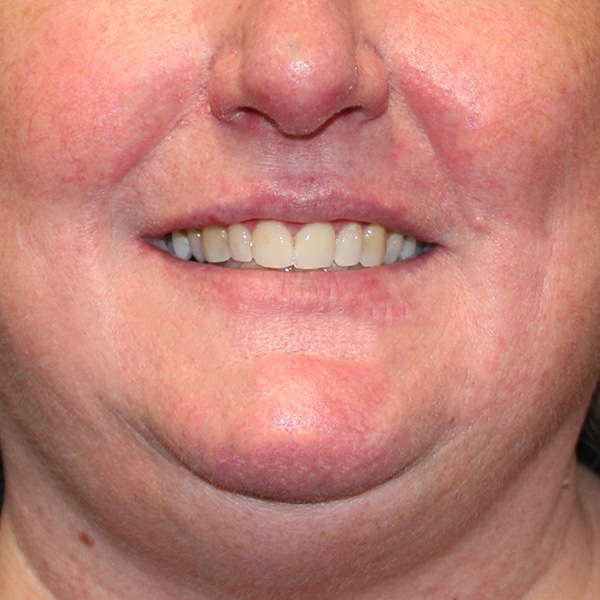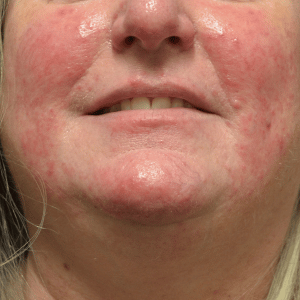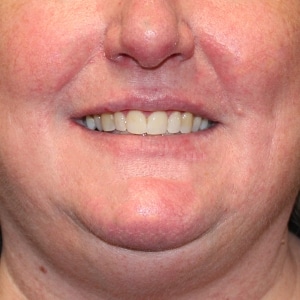The Science Behind Rosacea
Rosacea is a chronic skin condition that mainly affects the middle third of the face and whose cause is unknown. Rosacea does not go away permanently. It can go into remission and there can be lapses in flare-ups. Left untreated, permanent damage may result. This damage can be serious as it can affect a patient’s eyes and cause permanent skin redness.
Non-Surgical Treatments for Rosacea
The Science Behind Rosacea
Rosacea is a chronic skin condition that mainly affects the middle third of the face and whose cause is unknown. Rosacea does not go away permanently. It can go into remission and there can be lapses in flare-ups. Left untreated, permanent damage may result. This damage can be serious as it can affect a patient’s eyes and cause permanent skin redness.
Non-Surgical Treatments for Rosacea
Fast Facts
Signs of the disease include flushing, persistent redness, bumps and pimples, visible blood vessels, and skin thickening (especially on the cheeks and nose).
Anything that causes your rosacea to flare is called a trigger. Sunlight and hairspray are common rosacea triggers. Other common triggers include heat, stress, alcohol, and spicy foods.
To prevent or lessen rosacea, seek shade and sun protection; reduce stress; avoid overheating; limit hot beverages.; limit alcohol; dial down spicy foods and use rosacea-friendly makeup.
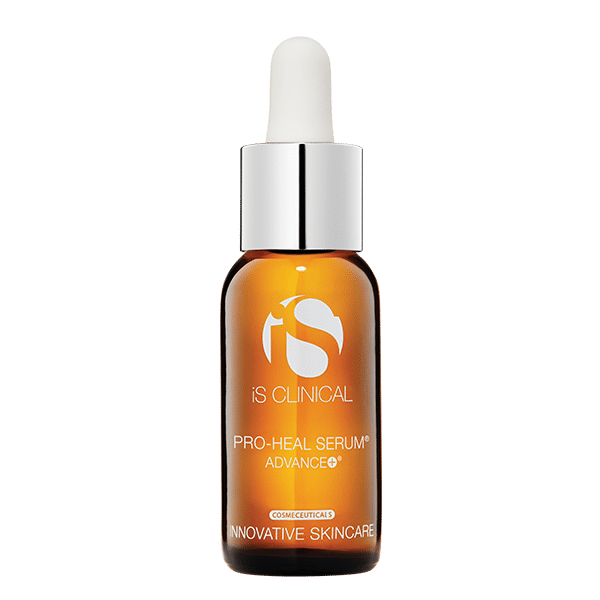



Real life patient stories
“I have struggled with rosacea since high-school. I’ve always been very self-conscience out in public. Dr. Kerry put together a multi-step treatment plan and prescribed a gentle and effective at-home skin care regimen that is make a big difference, calming the inflammation and redness. My skin isn’t so red and angry any more and I’m so grateful for this!”
Real life patient stories
“I have struggled with rosacea since high-school. I’ve always been very self-conscience out in public. Dr. Kerry put together a multi-step treatment plan and prescribed a gentle and effective at-home skin care regimen that is make a big difference, calming the inflammation and redness. My skin isn’t so red and angry any more and I’me so grateful for this!”

